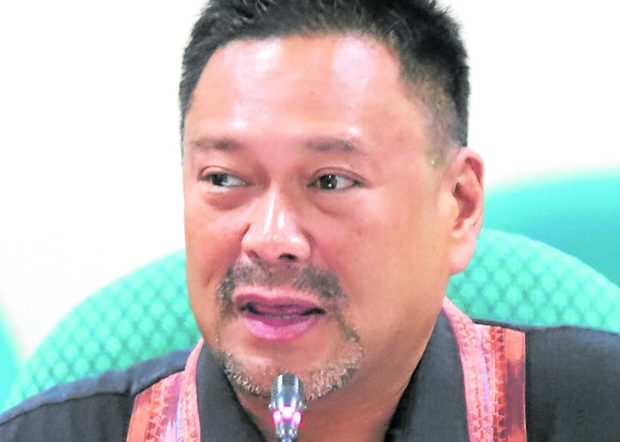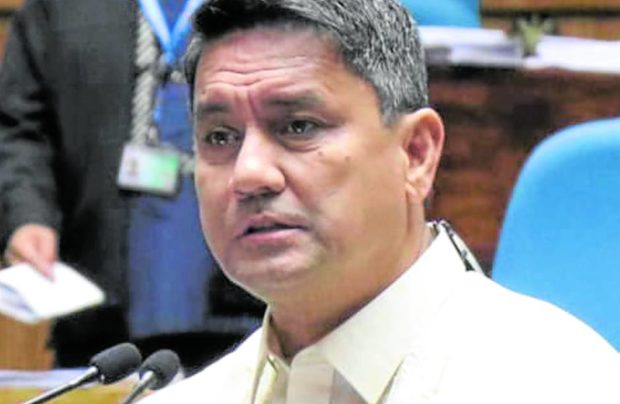Think tank: LGUs not yet ready for devolution

Former Interior Undersecretary Jonathan Malaya, executive director of the Local Government Development Institute. (FILE PHOTO)
MANIA, Philippines — A local governance think-tank urges the administration of President Ferdinand Marcos Jr. to heed the request of the local government units (LGUs) to move the implementation of full devolution to 2027, instead of 2024, the target period set by his predecessor Rodrigo Duterte.
Full devolution, or the transfer of key national government functions to the LGUs, is in compliance with the Mandanas-Garcia ruling of the Supreme Court, which gave bigger budgets to provinces and cities, but at the same time stipulated that the task of implementing programs and projects otherwise done by agencies of the national government be transferred to mayors and governors.
The high tribunal in 2018 granted the petitions of Batangas Gov. Hermilando Mandanas and the late former Bataan Gov. Enrique Garcia Jr. that the LGUs’ internal revenue allotment or IRA (now called the national tax allotment or NTA) should come from 40 percent of “all” national taxes — not only from the collections of the Bureau of Internal Revenue which had been appropriated in the past but also from the Bureau of Customs’ collections of import duties and other taxes.
Under the 2023 budget, for instance, ₱820.3-billion in NTA is allocated together with ₱28.9 billion under the Local Government Support Fund (LGSF) to empower LGUs in delivering the devolved services. In 2021, this amounted to only ₱695.49 billion.
Duterte signed Executive Order No. 138 in June 2021 directing the national government to “devolve” or transfer to LGUs the implementation of formerly national government functions and give LGUs a three-year transition period until 2024.
The order cited Section 17 of Republic Act No. 7160, or the Local Government Code of 1991, allowing the transfer to LGUs of local infrastructure (for education, irrigation, and trade), agriculture and natural resource management, environmental services, telecommunications, peace and order, social welfare, transportation, tourism, and housing services functions.
‘Risk of a failure’
However, the Local Government Development Institute (LGDI) agreed with LGUs and other experts on the need to extend the transition period under EO 138 to six years, or to 2027, for a more gradual transfer of programs.
“Based on our interactions with LGUs across the country, many are clearly not ready for full devolution. The risk of a failure is high. We should learn from our experience in the ’90s during the first phase of the devolution which was very challenging. Therefore, the appropriate interventions have to be given to the LGUs,” Jonathan Malaya, executive director of LGDI and former undersecretary of the Department of the Interior and Local Government (DILG), said in a statement.
“It is critical that LGUs are actually prepared technically and financially to take on the additional functions that come with full devolution. If the LGUs are not ready to deliver the services given before by the national government, it may result in delayed or deficient implementation which is to the detriment of public service,” he warned.
Malaya called on the national government to fast-track the implementation of capacity development programs to prepare all LGUs for the devolution transition.
He said the DILG’s Local Government Academy (LGA) could take the lead in capacity development interventions for the local governments and introduce the appropriate mechanisms to ensure efficient use of government resources.
Given the many capacity development interventions by the Department of Budget and Management, the National Economic and Development Authority, the Department of Finance, the Development Academy of the Philippines, and third-party service providers for the LGUs, the LGA should harmonize all these efforts, Malaya said.
All LGUs and the national government agencies concerned should also prepare their respective devolution transition plans to ensure the smooth implementation of full devolution.
Fund misalignment
According to Malaya, the government should seriously consider an earlier call by House Assistant Majority Leader Richard Gomez for a one-to-one correspondence between the increased NTA to the cost of devolved programs to LGUs.
The Leyte lawmaker had even urged the President to repeal EO 138, citing the lack of a clear plan and the misalignment in the source of funding.
“I am appealing to President Marcos to nullify EO 138 as Congress and the Executive thresh out the various issues that have cropped up related to the implementation of the full devolution of services,” he said, adding: “Let’s put everything in order first before discussing full devolution again.”
“Most glaring of these issues is the fact there is simply no peso-for-peso correspondence between the added NTA and the added funds required to finance full devolution. In many cases, the added funds required to finance fully devolved programs [are] more than the additional NTA.
This misalignment in sources and uses of funds at the LGU level emanates from a systemic issue that can be traced from how NTAs are derived per LGU as mandated by RA 7160,” he noted.
The House committee on local government has initiated an inquiry stemming from Gomez’s House Resolution 599, which maintained that the calculation of the NTA of local governments were not aligned with the costing of devolved functions under the Local Government Code of the Philippines and EO 138.
Not all LGUs capable
In the Senate, Sen. JV Ejercito on Sunday agreed that many LGUs might not be able to take on the devolved functions from the national government within the three-year transition period.
“I would highly recommend [an] extension of the transition period,” the chair of the Senate local government committee told the INQUIRER.
“Cities and first-class municipalities will probably have the capacity, but second to fifth-class municipalities might not have the capacity yet to implement some of the devolved functions like health, education, and agricultural programs,” the senator said.
He said he had discussed with Interior Secretary Benhur Abalos and Valenzuela City Rep. Rex Gatchalian, Ejercito’s counterpart in the House of Representatives, the creation of a technical working group to look into the effect of the Supreme Court’s Mandanas ruling.

